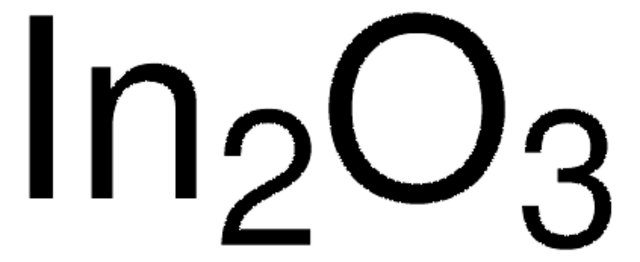636916
Indium tin oxide coated glass slide, rectangular
surface resistivity 15-25 Ω/sq, slide
Synonym(s):
ITO, ITO coated slide, rectangular
About This Item
Recommended Products
Quality Level
surface resistivity
15-25 Ω/sq
L × W × thickness
75 mm × 25 mm × 1.1 mm
transmittance
>78%
refractive index
n20/D 1.517 (lit.)
SMILES string
O=[Sn]=O.O=[In]O[In]=O
InChI
1S/2In.5O.Sn
InChI key
LNNWKAUHKIHCKO-UHFFFAOYSA-N
Looking for similar products? Visit Product Comparison Guide
Related Categories
General description
Application
Physical properties
Storage Class Code
13 - Non Combustible Solids
WGK
WGK 3
Flash Point(F)
Not applicable
Flash Point(C)
Not applicable
Personal Protective Equipment
Certificates of Analysis (COA)
Search for Certificates of Analysis (COA) by entering the products Lot/Batch Number. Lot and Batch Numbers can be found on a product’s label following the words ‘Lot’ or ‘Batch’.
Already Own This Product?
Find documentation for the products that you have recently purchased in the Document Library.
Customers Also Viewed
Articles
Dye-sensitized solar cells directly convert sunlight to electricity
Over the last decade, dye-sensitized solar cells (DSSCs) have attracted much attention because these unconventional solar cells exhibit high performance and have the potential for low-cost production.
Organic photovoltaics (OPVs) represent a low-cost, lightweight, and scalable alternative to conventional solar cells. While significant progress has been made in the development of conventional bulk heterojunction cells, new approaches are required to achieve the performance and stability necessary to enable commercially successful OPVs.
A transparent conductive electrode (TCE) is an essential component of various optoelectronic devices such as solar cells, liquid-crystal displays (LCD), light-emitting diodes (LED), and touch screens.
Our team of scientists has experience in all areas of research including Life Science, Material Science, Chemical Synthesis, Chromatography, Analytical and many others.
Contact Technical Service


